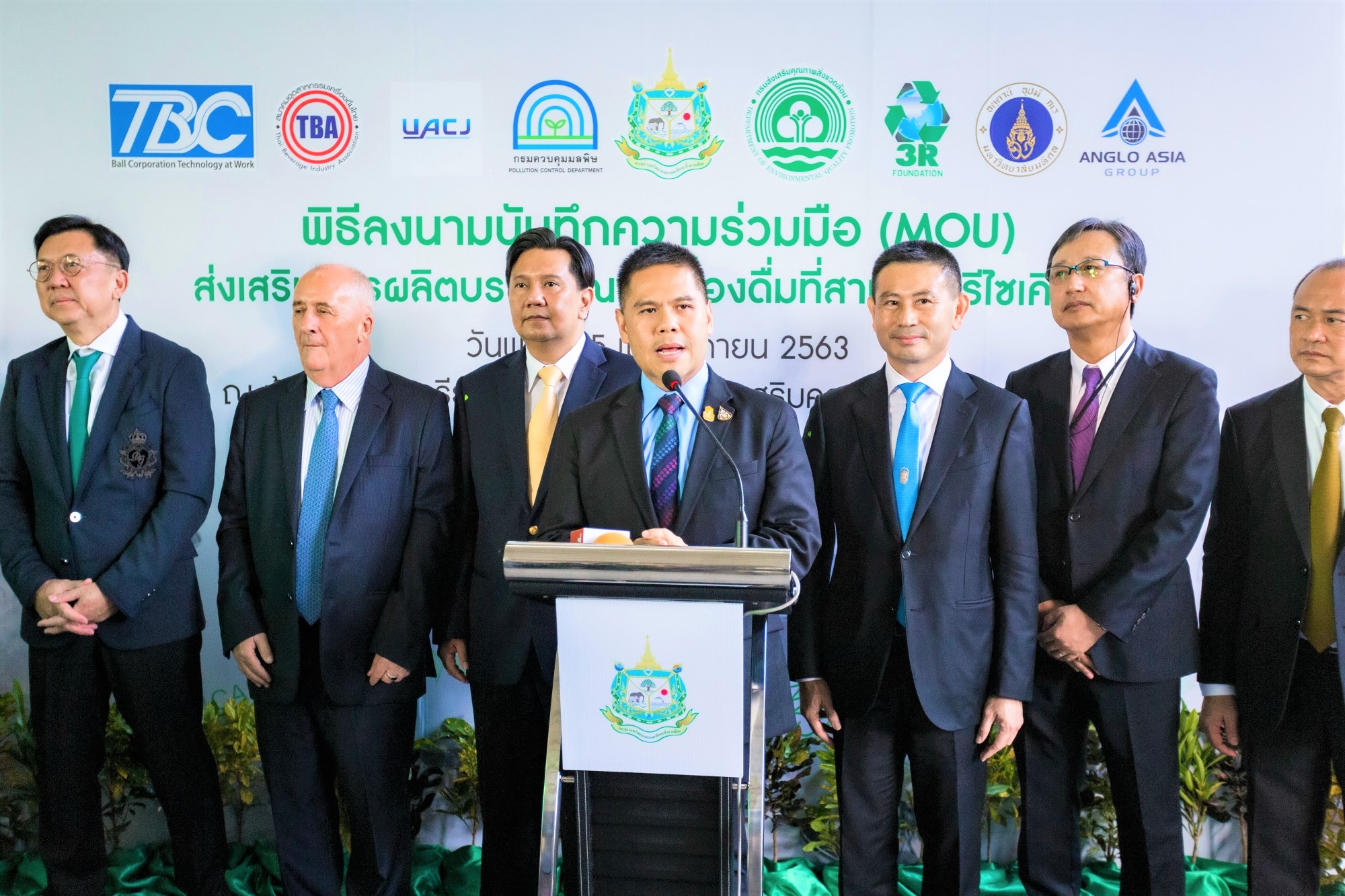
MOU Recyclable Beverage Packaging
MOU signing ceremony for promoting the production of recyclable beverage packaging between the public and private sectors.
Legs… vital organs that enable the body to maintain balance and mobility. However, life can be quite challenging for “amputees” because the absence of legs becomes a significant obstacle in daily living. Medical professionals have thus developed and innovated “prosthetic legs” to assist individuals with disabilities in resuming their daily lives.
In Thailand, it is true that not all leg amputees have access to prosthetic service because “prosthetic legs” are high-priced devices. Consequently, individuals with limited financial resources are unable to receive prosthetic legs. To address this issue, Her Royal Highness Princess Srinagarindra, the Princess Mother established the Prostheses Foundation. Its mission is to assist leg amputees of all nationalities and religions at no cost.
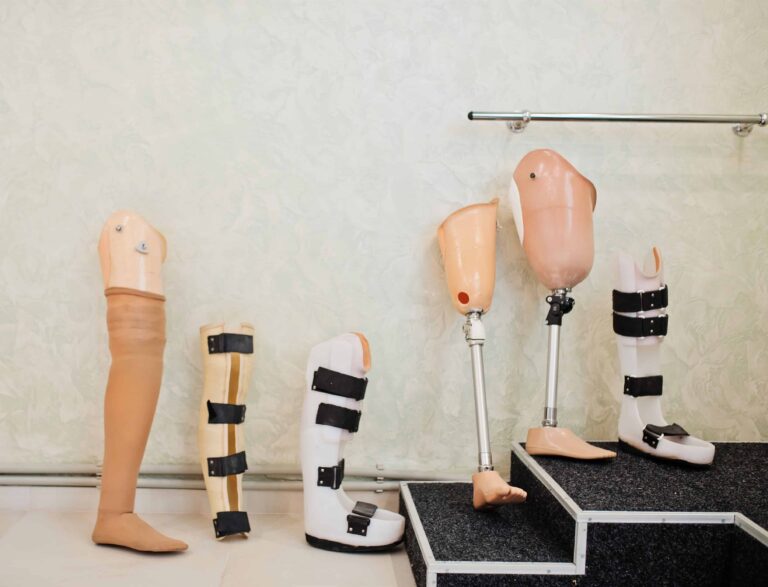
Previously, “prosthetic legs” were made from materials like used Yakult milk bottles, and aluminium can pull rings (as steel cans were widely used in the past, and aluminium cans were not as common. Pull rings from cans of any type were all aluminium so using pull rings makes it easier to donate.) However, due to the strength and flexibility of aluminium rings, they were prone to deformation under stress. Therefore, the Prostheses Foundation sought materials that were both strong and more flexible to increase durability and safety in accordance with the international ISO 10328 standard for orthopedic limb devices. Consequently, modern prosthetic legs from the Prostheses Foundation are now made from high-grade aluminium and stainless steel, which offer greater flexibility, resilience, and strength compared to regular aluminium.
As for the pull rings donated by the public, the Prostheses Foundation sold them to industrial factories to enter the recycling process. The funds are used to purchase materials for making more prosthetics, ensuring that every amputee has access to high-quality prosthetic limbs that meet global standards.

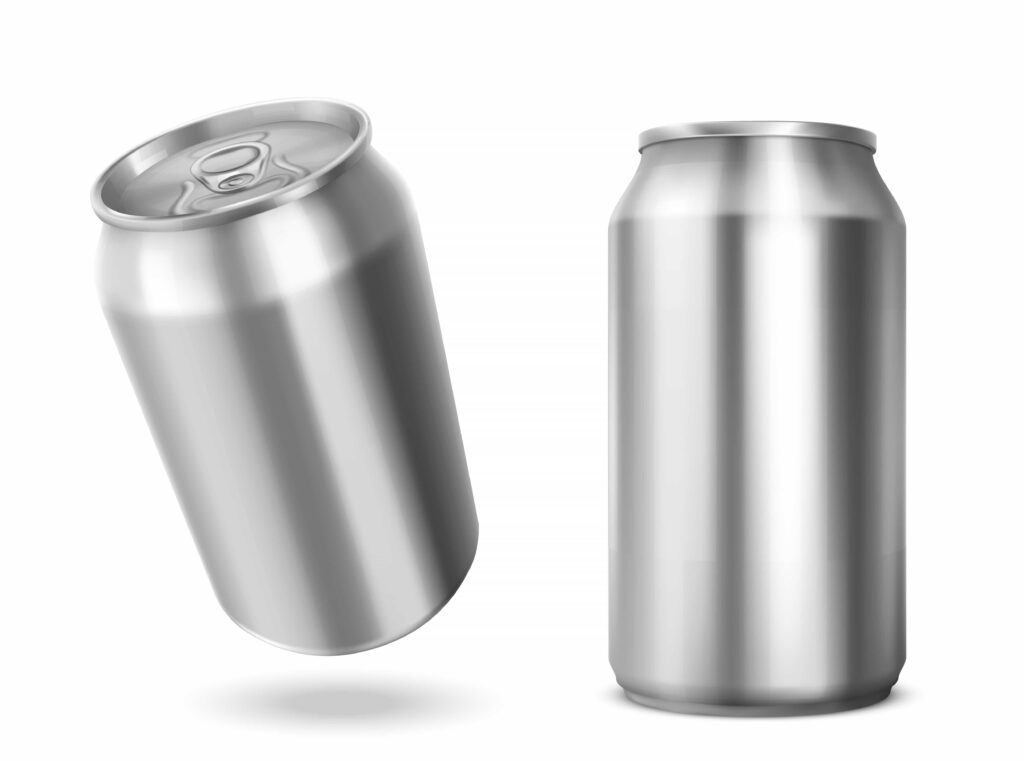
Furthermore, to enhance the quality of life and contribute to building a better society, “Recycle for Life” for the Prostheses Foundation project aims to encourage the public to recycle used aluminium beverage cans and convert them into value to support the foundation’s ongoing operations. This not only helps the community but also conserves the environment by preventing cans from becoming litter.
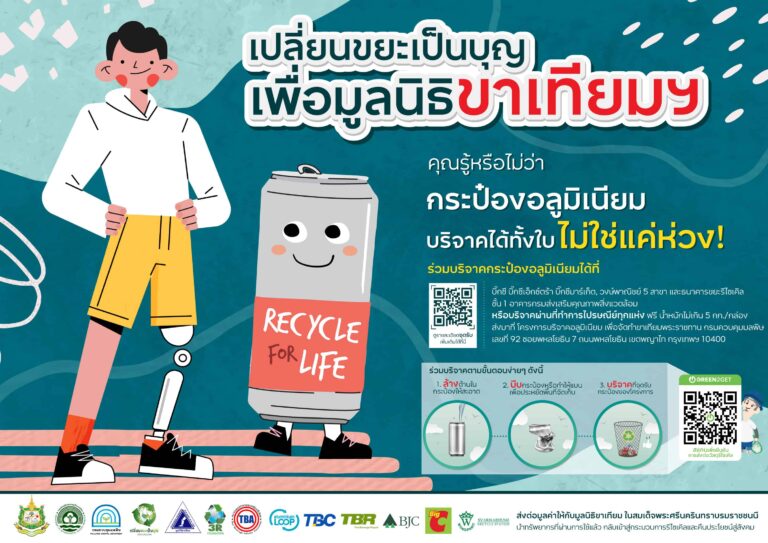
For those interested in donating used aluminium cans, you can donate the entire can without separating the ring pull at various locations such as:
– Big C at over 190 branches
– Wongpanit 5 branches: Wongpanit Suvarnabhumi, Wongpanit Chalong Krung, Wongpanit Korat Top Secret, Wongpanit Prachinburi, and Wongpanit Chiang Rai Top Secret.
– Recycling Waste Bank, 1st floor, Department of Environmental Quality Promotion building.
– Donate through postal services at any post office. Shipping is free for boxes weighing less than 5 kg./box. Send to ‘Aluminium Can Donation Project for the production of Royal Prosthetic Legs, Department of Pollution Control, 92 Soi Phaholyothin 7, Phaholyothin Road, Phaya Thai District, Bangkok 10400.
Join us in creating opportunities and new lives for amputees and promoting the recycling of aluminium cans, a sustainable and environmentally friendly packaging option.You can find the collection point locations for aluminium can donations at https://thaibeveragecan.com/th/recycling-program/
Currently, the Prostheses Foundation no longer utilizes aluminium can ring pulls, but you can still donate as entire aluminium cans without separating the rings, allowing the cans to be recycled entirely and turned into new cans.


MOU signing ceremony for promoting the production of recyclable beverage packaging between the public and private sectors.
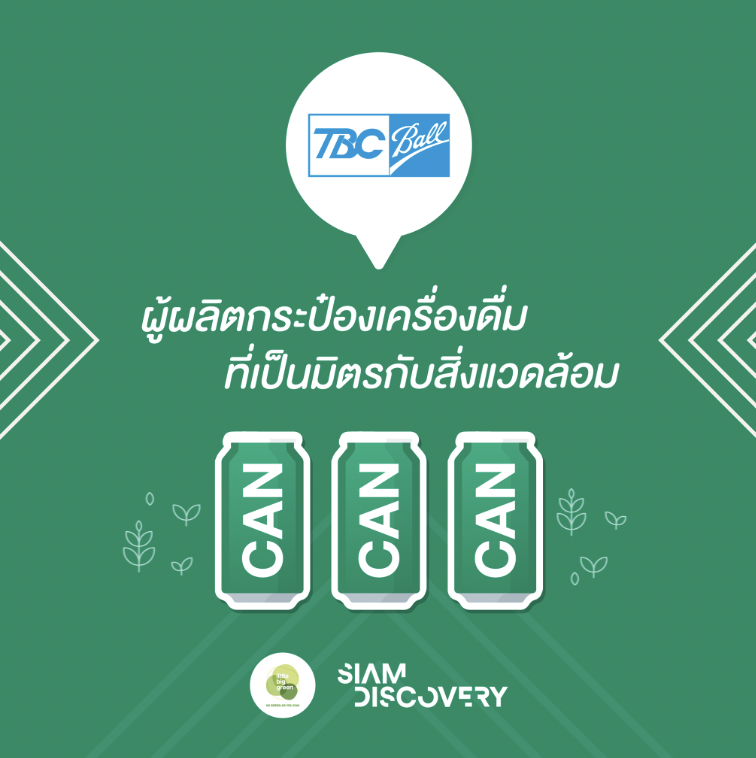
TBC Ball’s initiative to make drink cans a sustainable packaging option, particularly from an environmental perspective.
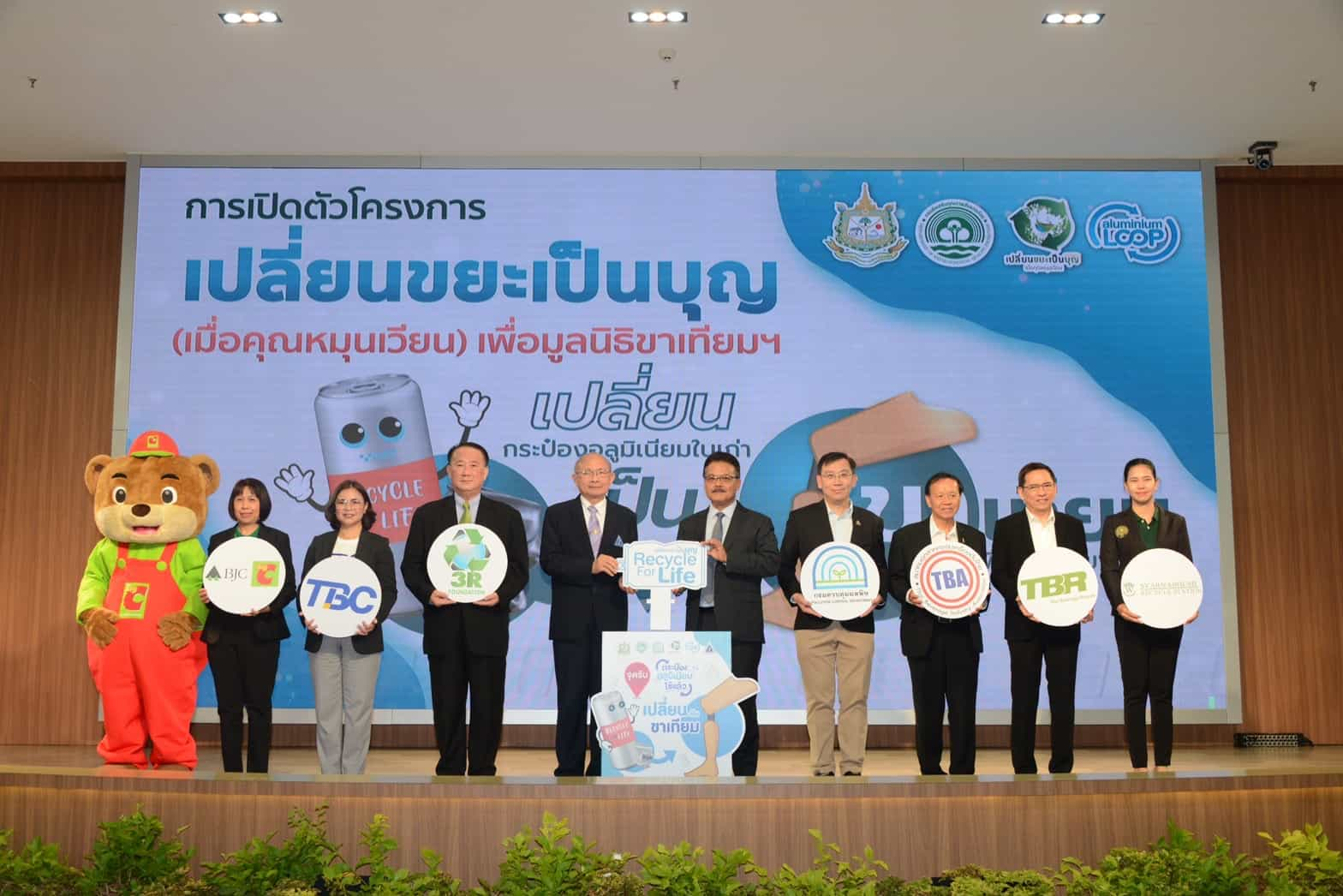
The Prostheses Foundation project. It extends waste management from the source, passing on value to the foundation.